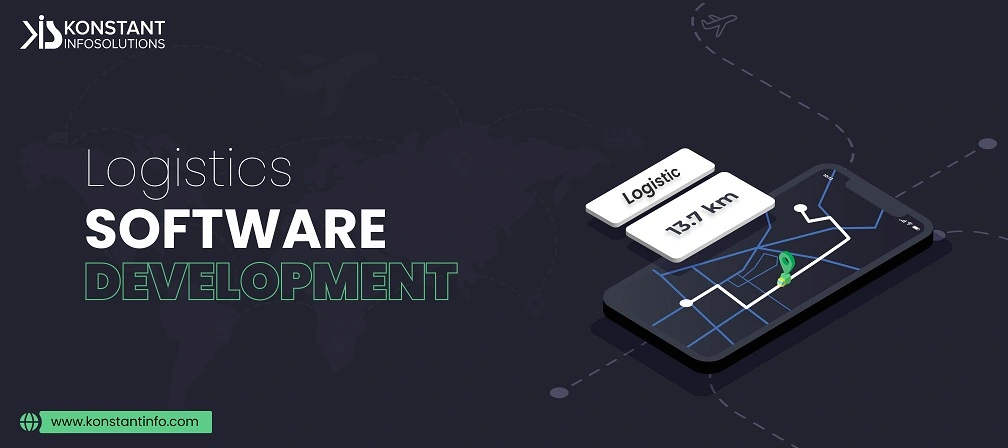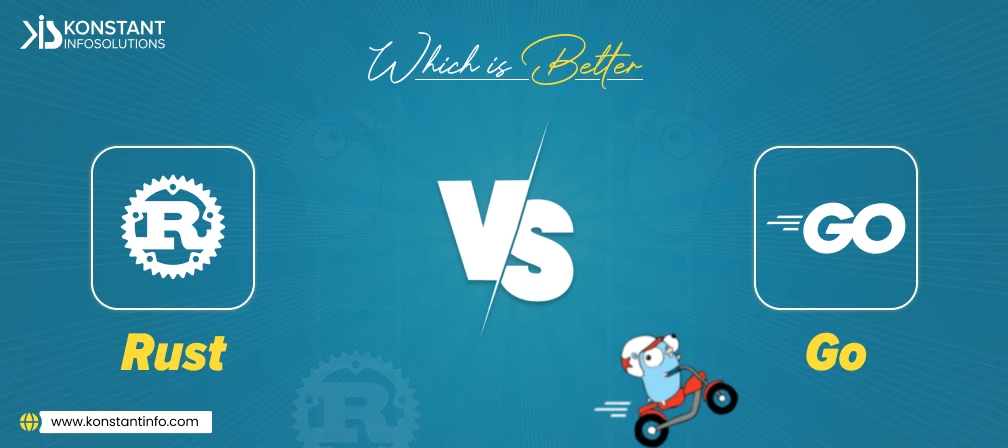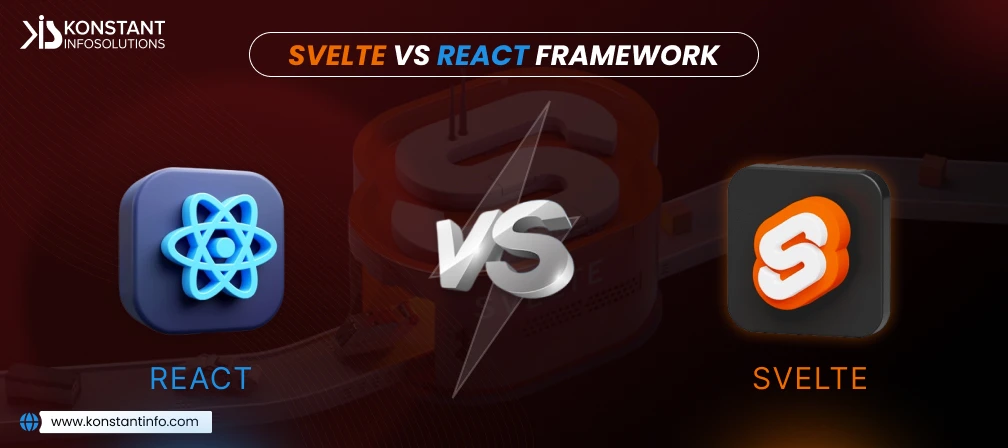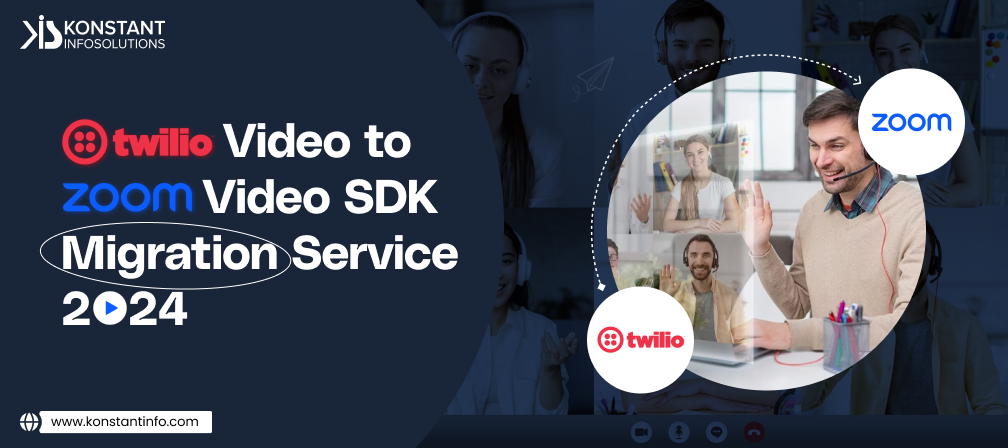
Do you know that the Logistics software market size is expected to reach over 50 billion US dollars by 2031?
Further, the transportation and logistics industry is anticipated to grow at the rate of 10.6% from 2023 to 2031, noting the current valuation standing at 20.26 billion US Dollars. The high growth is due to people realizing the value of tech in businesses. The involvement of tech in the logistics industry has boosted productivity, saved time, reduced the overall cost, and decreased human errors.
Also, major challenges in the industry like downtime, freight & shipping loss, and operational malfunction can be tackled using the software for logistics. Transportation logistics software development helps bring transparency to the business and achieves a reliable supply chain.
This post explores the need for logistic software development in today’s time. It includes major topics like the benefits of logistics software and the latest tech trends in the industry. It also explores the app development-related queries, including the logistics mobile app development cost and time required. Let us start with some astonishing numbers about the industry.
Logistics Management Software – Stats
Logistic software development is made to assist companies in handling the many different aspects of production, such as scheduling the delivery of raw materials and delivering completed goods to retail locations. With the way that shipping and petrol prices are always fluctuating, it is imperative that you have software for logistics that will assist you in effectively managing your company’s logistics.
This program will assist you in making sure that the organization’s workflow is productive and efficient. It will assist you in organizing all of the material you create and ensuring that it gets to its intended location. Transportation is the main emphasis of software for logistics, as it can occasionally be the most expensive and challenging to track.
There are several reasons why businesses are opting for logistic software development these days. Some of the top ones are –
Software for logistics reduces the overall overhead costs of the enterprise by automating the processes. The software can also compare several transportation methods and services to get the best option for your organization.
Logistics software can collect different types of data and store it for future use. The data can be used to analyze different patterns and take the necessary action.
Large amounts of transportation data require labor-intensive, error-prone manual analysis. These data can be processed by a logistics program error-free in less time, advancing the processes with little to no delay.
One of the biggest benefits of software for logistics integration is process automation. Logistics software facilitates the automation of transportation tasks such as load planning, shipment route creation, and load tendering to carriers. Additionally, it gets rid of paperwork, which facilitates quick and effective completion of the procedures.
One important aspect of logistics is transportation. It is the most expensive in terms of energy, gasoline, labor, shipping costs, and road tolls. Using logistics management software simplifies data analysis and helps you make informed decisions that will save expenses and increase productivity.
With each passing day, the demand for transportation and logistics software development is increasing. Further, with its popularity, the industry is also adopting tech trends to reduce time & effort. The latest tech trends that are reshaping the niche are –
Innovative logistic robotics businesses have been working hard to include AI and machine learning over the past few decades. Better sensors and reaction times, as well as logistics or warehouse management software, are available. The supply chain’s utilization of warehouse robotics has increased dramatically recently.
For instance, Alibaba invested $15 billion in robotic logistics infrastructure. Additionally, it is projected that by the end of 2021, the global market for supply chain warehouse robotics will over worth $22.4 billion.
AI will be used by logistics organizations to churn insights and find patterns in data. It will support the advancement of processes including demand forecasting, budget planning, route optimization, and intelligent transportation.
According to McKinsey, real-time projections and behavioral coaching can lower costs through AI-driven logistics optimization. Compared to other analytics methodologies, artificial intelligence (AI) has a potential added value of 89% in the logistics and transportation sector.
There have been a number of technological updates in logistics including the use of cloud. Cloud computing services like real-time price changes, inventory, and tracking are made possible by cloud-integrated software for logistics. With the help of technology, you may follow the progress of your product or order from ordering to delivery, getting all the information you need in one convenient location.
Distributed ledger technology, or blockchain, makes it possible to permanently and securely record transactions between participants. Blockchain’s shared and secure databases make it possible to circumvent middlemen and other outside parties that coordinate supply chain transactions and record verification.<
This module facilitates distribution operations management and inventory tracking for businesses. In other words, this module will enable you to know things like what’s available and unavailable in the warehouse, how full it is, when new shipments and deliveries are scheduled, etc.
Daily duties like accounting, purchasing, risk and project management, and compliance are made easier with the help of this module. With precise estimates, long-term planning, and project management, you can reduce setbacks.
Orders, sales, delivery, and inventory levels are all tracked using IMS software. Work orders, bills of materials, and other production-related paperwork are also created with it in the manufacturing sectors. The method by which you track your goods throughout the whole supply chain, from purchasing to manufacture to final sales, is known as an inventory management system, or inventory system.
To assess material and human resources, manage production and dispatch, and keep an eye on shipments and freightage, you must incorporate this module into your system. That is, allocating resources to different operating forces will be simpler for you.
This module assists in arranging and carrying out the transportation of commodities and guarantees that shipments are legitimate and appropriately recorded. It is crucial for you as a logistics company that the item travels from point A to point B. You must have this module in order for this to work.
This system is required so that the customer can track the location of their goods, as well as when they will reach their destination and how long they will remain on the road.
Overseeing the transportation process is essential for every logistics company because of its obligation to guarantee that the items arrive at the business and play a significant role. Features such as automated carrier selection, which chooses the most cost-effective carrier or shipping option for each delivery, are included in the logistics management software. Dispatch scheduling, shipment consolidation, real-time cargo tracking, and route optimization are further capabilities.
Analyzing job outputs, comparing progress across the company’s numerous channels of operation, researching potential failure causes, and other tasks require data analytics.
Front-end development is client-side user interface, functional task display, and request processing are all considered front-end activities. When a user opens the system, everything they see is actually part of the front end.
Logistics front-end development tech stacks that our team suggests – jQuery, Angular.js, React.js, and Vue.js.
The project’s hardware and software make up the back end. The back-end encompasses any activities occurring on the server side that are not visible to the user.
For back-end logistics software development, our team suggests utilizing the following tech stacks – Python, Node.js, Java, and PHP.
The following tech stacks can be utilized to create cloud-based logistics software – .NET and Node.js.
The following tech stacks can be used to create mobile logistics software – Kotlin, React Native, and Swift.
A GPS tracking system will help you and other users track the movement of their goods in real time. The feature in logistics management software allows convenient tracking of the logistics, keeping them aware of the situation.
Notification feature in your logistics software solutions will help users receive important updates, messages, system changes, and much more. The notifications make sure that the user is passed on the important information even if they don’t have their software opened.
Third-party integration in the logistics management software allows better service and performance. Some of the popular integrations for software for logistics include CRMs, maps, and ERP.
Logistics software can generate reports and documents enhancing productivity and efficiency. It also presents data in an easy-to-read & understandable format that further allows better decision-making.
Two-factor authentication is required to ensure the safety & security of the logistics management software as well as your data. Users who pass the double verification test will only be able to enter the system.
Online payments enhance convenience and speed up several processes. Customers can make hassle-free payments on the app, anytime, anywhere.
Building logistics software is a complex task and should be done with a plan and hiring a reliable mobile app development company in India. The step-by-step guide is as follows:
The initial step is to make a detailed plan of the project, including the objective, goals, budget, etc. It should include all the details related to the software such as top competitors, market research, development process, logistics mobile app development cost, and strategy to launch. At the same time make sure to not include unnecessary details.
The next, and perhaps the most important step, is to hire a transportation and logistics software development company. It is crucial to do preliminary research about the top developers and then finalize one.
An logistics software development services provider has relevant experience, a good team, a relevant portfolio, and the required tech stack. You can also consult the Konstant team to discuss your requirements. We carry the experience & expertise to develop logistics software.
Once you’ve hired a logistics mobile app development company, the agency will start working on the backend & frontend part of the software. The company will provide a prototype and upon your verification, will move ahead. Using the design and documentation from the earlier phases, developers write the code for the component parts.
Team members are delegated tasks according to their areas of specialization. The client side of the program is within the purview of front-end developers. Database and API development falls under the purview of back-end developers. The CI/CD process is worked on by the DevOps team.
Once an MVP product is developed, QA engineers manually test the components and code. In case of any bugs or issues in the functionality, necessary actions are taken to rectify them. The process can be followed alongside the transportation app development process to save time and cost.
People are given access to the tested version of the product for beta testing. The group compiles feedback from users, resolves any problems, and makes improvements if required.
The development team takes care of any maintenance that has to be done on a product once it has been deployed in a production environment, such as fixing bugs or making changes. Note that you also need to update the software with frequent updates & features as per the trend.
Konstant team was assigned a project to build an on-demand logistic solutions software. The customers and drivers will have access to mobile apps in order to make it work. While the customer can easily book riders to deliver their packages from one place to another, the drivers will be independent/fleet-managed contractors who will get their fee for each successful package delivery paid by the customer.
We developed a groundbreaking and interactive app that empowers customers to effortlessly request pick-up and delivery of their essential products and services. With its cutting-edge features and user-friendly interface, this app offers a seamless online portal where customers can create multiple requests, providing unparalleled convenience and efficiency.
EVT (Electric Vehicle Transportation) is a cab booking app that empowers drivers and offers eco-friendly rides to users. The platform is committed to allowing people to enjoy smooth, safe, & environmentally friendly rides in electric cabs leaving behind the conventional way of traveling with Petrol, CNG, or diesel cabs. EVT chose Konstant as their ideal logistics app development company and we offered the work in accordance to their expectations.
The app is a franchise-based taxi booking platform developed using Native, Node.js & MongoDB. App track & get Data/records – speed, mileage, when the vehicle starts & ends, the driver stops, idle periods, fuel consumption, & many other variables from the GPS Device.
Konstant is a top website development company in India and has been a pioneer in offering IT infrastructure to clients globally and has delivered many successful logistics management software. Some of the top reasons why Konstant is an ideal choice for your next transportation and Logistics Software Development are:
We have been working in the market for over 20+ years now and have worked in multiple industries, including transportation & logistics. Our team knows the ins and outs of the transportation industry and can help you through the whole ideation journey.
Konstant also has past experience in major industries including logistics and supply chain management. Some of our top transportation and logistics software development projects are EVT, Mijo, C2G, Send IT Packages, and Compass Forwarding.
We also have the tools and technologies required to build a logistics software. The tech stack required to build the backend and frontend side of such apps is well-known and understood by our team.
Delivery is a major concern for most Indian outsourcing logistics software Development Company. Thus, we make sure that all our clients deliver the project and assigned work on time. We also have a high client retention rate and have maintained it for over 20 years now.
It is essential for you to analyze every logistics software development process and suggest necessary changes. You know your business more than anyone else and can help the website development company to make the software effective.
Make sure that your logistics software has high usability, i.e. ease of use & simplicity. The usability is dependent upon several factors, including how easy the platform is for users. Some of the other points to consider are speed, navigation, and the level of user satisfaction.
It is important to work on the cloud and not install the system on employee computers. The method is convenient for you as well as employees and is a safer way.
Make the system ready for the future, flexible and scalable. Build the system in a way that frequent changes can be made easily and quickly. With new possibilities coming daily in the market, your logistics software solutions need to pump up capabilities.
Outsource the logistics software development process to a mobile app development company in India. You open up your options to a large number of specialists at affordable prices. Further, the process is quite popular and a reliable way.
The cost to develop logistics software depends upon several factors including –
So, these are the top factors affecting the logistics mobile app development cost. The final cost can be determined only after understanding the exact requirements. However, we can provide an approximate cost on the basis of the type of app:
| Type of App | Average Development Cost |
| Basic Logistics Software Cost | $8000-$13000 |
| Medium Logistics Software Cost | $15000-$20000 |
| Complex Logistics Software Cost | $25000 or more |
So, this was all about the transportation and logistics software development. We have tried to cover all the major topics here including – tech trends in the logistics market, benefits of software, the development process, and the logistics mobile app development cost required to build a logistics app, along with some of our past client case studies. Note that hiring an offshore logistics mobile app development company is considered ideal due to its affordable price and top-notch expertise on the subject. Companies like Konstant have been carrying client trust for a long time now and have proved their worth from time to time.
One can follow the below-mentioned steps to develop a logistics software –
The time required to build a logistics app is between 3-6 months. However, the exact time can be calculated after understanding the requirements. Good Logistics software companies plan designs, and develops the app within schedule to deliver the project on time.
On-demand logistics apps benefit a business in several ways, including –
Some of the most popular methods to monetize a logistics app are –



Manish Jain is the co-founder and Managing Director at Konstant Infosolutions. He is responsible for the overall operations of the company and has played a major role in bringing Konstant up from its humble beginnings and, with his immense energy and drive, transforming it into a globally trusted name in IT solutions.
Or send us an email at: [email protected]